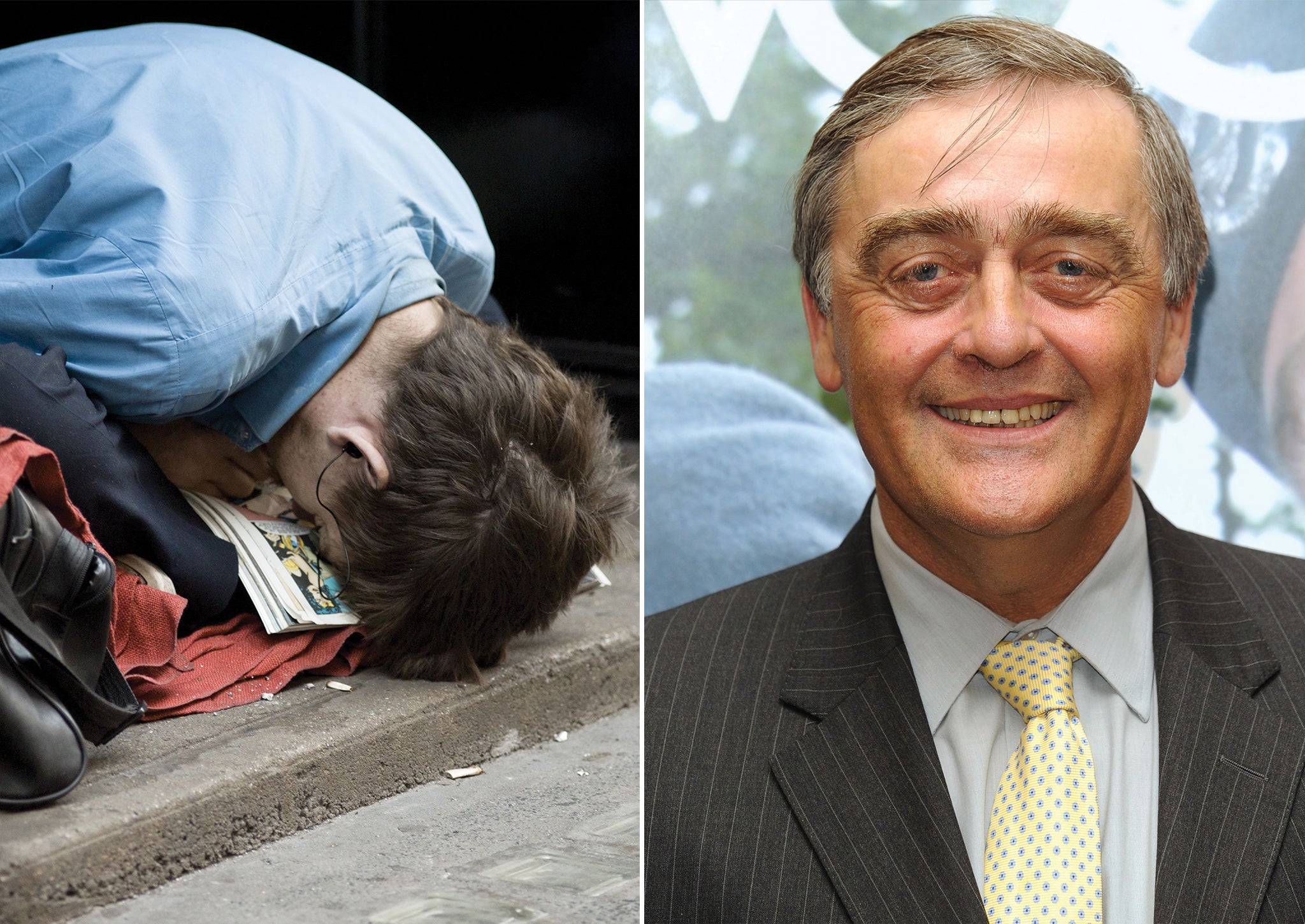I wish I was exaggerating, but it's true – 2014 has been a year of unprecedented inequality
There are now 13m people living below the poverty line in the UK

Your support helps us to tell the story
From reproductive rights to climate change to Big Tech, The Independent is on the ground when the story is developing. Whether it's investigating the financials of Elon Musk's pro-Trump PAC or producing our latest documentary, 'The A Word', which shines a light on the American women fighting for reproductive rights, we know how important it is to parse out the facts from the messaging.
At such a critical moment in US history, we need reporters on the ground. Your donation allows us to keep sending journalists to speak to both sides of the story.
The Independent is trusted by Americans across the entire political spectrum. And unlike many other quality news outlets, we choose not to lock Americans out of our reporting and analysis with paywalls. We believe quality journalism should be available to everyone, paid for by those who can afford it.
Your support makes all the difference.Around this time of year it’s customary to take a look back at the year gone by in the form of a whimsical quiz. So here’s your starter for ten: According to a report by Oxfam, how many rich people own as much wealth as half the world’s population?
Is it...
A 85,000
B 8,500
C 850
D 85
The answer is D. Just 85 people own as much as half the world’s population.
This is an unprecedented level of inequality, according to the World Development Movement, a poverty campaign group. So let’s take a perhaps-not-so-whimsical look back at some of the things that have made 2014 possibly the most unequal year ever.
Another report by Oxfam in March found that the five richest families in the UK own as much as the bottom 20 per cent of the population (which is 12.6m people). The single most affluent of these, Gerald Cavendish Grosvenor and family, own as much as the bottom 10 per cent (6.3m people).
The same report found that the incomes of the top 0.1 per cent have risen four times faster than the bottom 90 per cent in the last 20 years. Once increases in the cost of living are factored in, the vast majority of the population has seen a drop, in real terms, of 12 per cent in their disposable income.
All of which has led to increased poverty. One in five of the UK population – over 13m people – now live below the poverty line, despite falling unemployment. This is because many people are in low-income, unstable and part-time jobs which do nothing to tackle the real causes of poverty. Now, for the first time ever, more working households are living in poverty than non-working households.
One effect of this has been a shocking increase in the use of food banks. Trussell Trust, the UK’s biggest food bank provider, reported in April that people using their food banks had risen to 913,138 in 2013-14, compared with 346,992 in 2012-13. That’s a staggering rise of 163 per cent in just one year.
People are also getting increasingly into debt to keep their heads above water. According to statistics from The Money Charity, consumer credit debt is up by £359.85 per household from last year. In October the average household debt stood at £55,286 per household with total credit card debt at £60.8 billion or £2,303 per household.
Despite all this, the Government continue to cut welfare to the very poorest in society, while giving financial break after financial break to the wealthiest. The total debt incurred by the bank bailout stands at over a trillion, contributing to a current national debt of around £1.47tn (it’s hard to give an exact figure as the number is increasing by £5,170 per second!) And even that’s not as bad as it sounds – the real debt, including all liabilities such as state and public sector pensions, is thought to be nearer £4.8tn, or £78,000 per person.
This will have to be paid by the taxpayer. But it won’t come from the wealthiest tax payers (or rather non-tax payers). The government’s pandering to big business means the UK loses around £35bn a year in unpaid taxes, £5.2bn of which, according to the Oxfam report, is from wealthy individuals using tax havens.
No wonder their income has grown four times faster than the rest of the population's. And no wonder 2014 has been a year of unprecedented inequality. Perhaps all we can do now is look forward and hope that 2015 won’t take over the crown of most unequal year ever. Cold comfort with your cold turkey?
Join our commenting forum
Join thought-provoking conversations, follow other Independent readers and see their replies
Comments